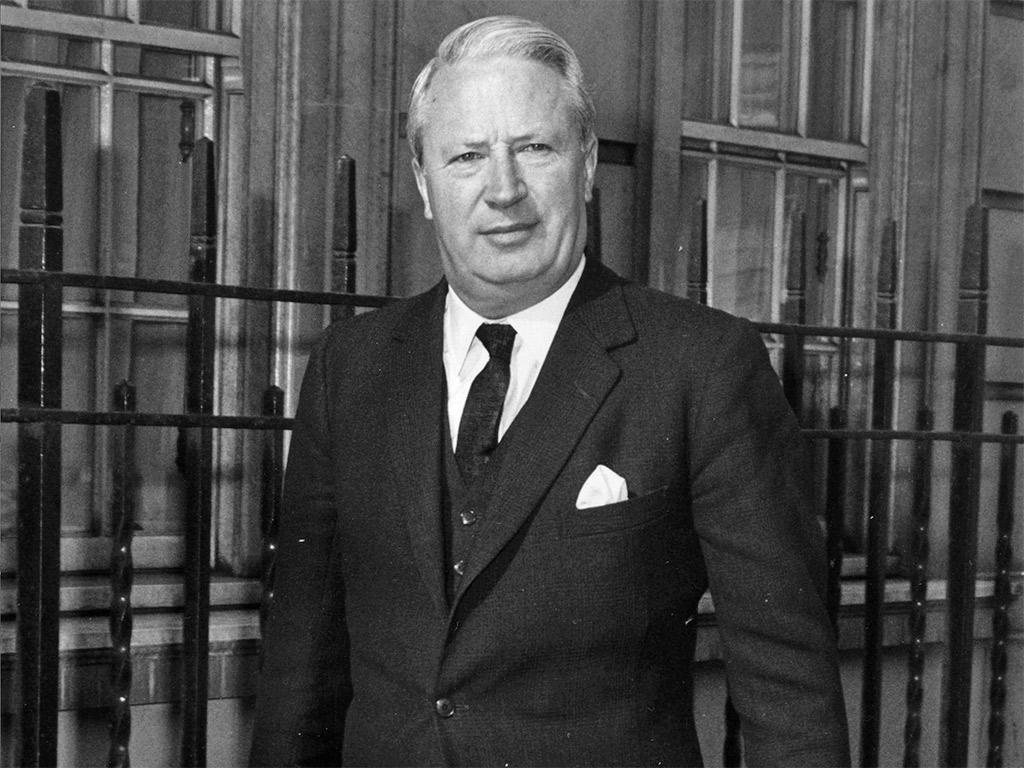Sir Edward Heath: The notoriously secretive PM who presided over some of Britain's most turbulent post-war years
Former Conservative leader oversaw UK’s entrance into EU but was deposed by Margaret Thatcher after losing snap general election in 1974

As Prime Minister, Sir Edward Heath presided over some of the most turbulent years in Britain’s post-war history.
His time in Downing Street – from 1970 to 1974 – was marked by widespread industrial unrest with power blackouts and much of the country reduced to a three-day working week.
For his supporters, his crowning achievement was to negotiate Britain’s entry into the Common Market, as the EU was then known – a decision that continues to divide Conservatives 40 years on.
His time in office ended ignominiously after he lost a snap general election which he had called to try to bolster his authority in the face of a second coal miners’ strike.
He never forgave Margaret Thatcher for ousting him as Tory leader in 1975, for years nursing a grudge which became known as the “incredible sulk”.
Sir Edward was born in Kent in 1916 and studied at Balliol College Oxford, becoming president of the Oxford Union. He served with the Royal Artillery during the Second World War.
He entered Parliament in 1950, as the MP for Bexley, and served in successive Conservative governments until 1964. In 1965 he became the first elected and first state-educated leader of the Tories and held the role for the next decade.
After losing to Mrs Thatcher, Sir Edward helped foster links between the West and communist China.
In 1990 he flew to Baghdad and successfully negotiated the release of some of the “human shield” hostages being held by Iraqi leader, Saddam Hussein.
A lifelong bachelor, Sir Edward was famously reticent about his private life focusing his energies away from politics on his twin passions of sailing and classical music. He remains the only British Prime Minister to have won a major international sporting trophy while in office, captaining Britain's sailing team to victory in the Admiral’s Cup in 1971.
Sir Edward had a reputation of being cold and indifferent towards women.
One biographer concluded he may have been a latent or repressed homosexual while another thought he was “pretty well sexless” having failed to find any evidence of any intimate relationships with either men or women.
In 2007 Brian Coleman, a senior Tory on the London Assembly, caused a stir when he claimed it was common knowledge in Conservative circles that Sir Edward had been warned by police in the 1950s over his “cottaging activities”.
However, no corroborating evidence was produced to support the allegation which was disputed by others in the party.
Sir Edward continued to sit in the House of Commons as the Member for Old Bexley and Sidcup until his retirement in 2001 and was the Father of the House between 1992 and 2001.
The Queen appointed him a Knight of the Garter in 1992 and he described the day of his inauguration as being “the proudest day of my life”.
In 1985 Sir Edward bought Arundells, an impressive house in the shadow of Salisbury Cathedral, and following his death in July 2005 aged 89 he bequeathed the property to the Sir Edward Heath Charitable Foundation.
The house, garden and Sir Edward’s art collection is now open to members of the public.
PA
Join our commenting forum
Join thought-provoking conversations, follow other Independent readers and see their replies
Comments